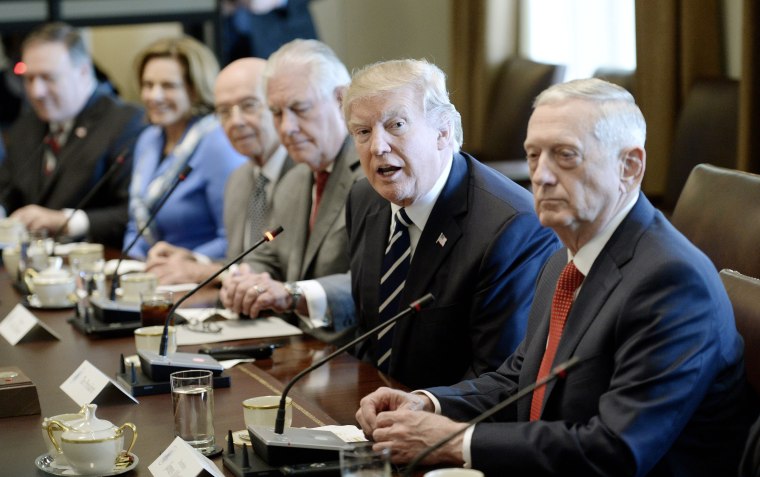In the days following Donald Trump's meeting with Vladimir Putin last week, Russian officials began talking publicly about implementing some of the "agreements" the two presidents reached. U.S. officials seemed to be caught off-guard -- because Trump hadn't told them anything about what was said at the meeting.
The Washington Post reported last week that "officials at the most senior levels across the U.S. military" were still scrambling without information two days after the summit in Helsinki. A day later, Director of National Intelligence Dan Coats said he didn't know what was said at the presidential meeting, either.
Susan Glasser had a striking piece in the New Yorker, explaining that top members of the White House team had "literally zero" information about possible commitments Trump may have agreed to with Putin -- because "unlike Putin, Trump did not brief his own diplomats."
As Glasser put it, "We are witnessing nothing less than the breakdown of American foreign policy.... Even if we don't know the full extent of what was said and done behind closed doors in Helsinki, here's what we already do know as a result of the summit: America's government is divided from its President on Russia; its process for orderly decision-making, or even basic communication, has disintegrated."
The day after that piece ran, Trump's Defense Department announced new plans to provide security support to Ukraine. "Russia should suffer consequences for its aggressive, destabilizing behavior and its illegal occupation of Ukraine," Defense Secretary Jim Mattis said in a statement, delivering a message that was in no way similar to his boss' rhetoric.
It's against this backdrop that the New York Times, pointing to assessments from current and former American officials, reported that the "disconnect between the policies aimed at curbing Russia and the president's position has never been wider."
In administration strategy documents, NATO communiqués and other official orders, Russia is called a growing threat, a potential or actual adversary intent on undermining democratic institutions of the United States and its allies. The Trump administration has imposed sanctions on Russia's elite, and the special counsel has indicted about two dozen Russians on charges of interfering with the 2016 presidential election.But in recent days, as Mr. Trump sustained his attacks on European allies, declared his meeting in Finland with Mr. Putin a success and signaled that he wanted a more constructive relationship with Moscow, following a policy of isolating Russia has grown more difficult, officials said.
John Sipher, a 28-year veteran of the CIA who served in Moscow in the 1990s and later ran the agency's Russia program, told the Times, "Parts of the government are working at cross-purposes to each other."
NBC News' First Read team added last week, "One aspect of what's made Donald Trump's presidency so jarring, so chaotic and often so confusing has been the two parallel administrations -- what Trump says, and then what everyone else in his administration says."
That was before the secretary of Defense took the kind of line toward Russia that we'd never hear from Trump.
The "breakdown of American foreign policy," indeed.
